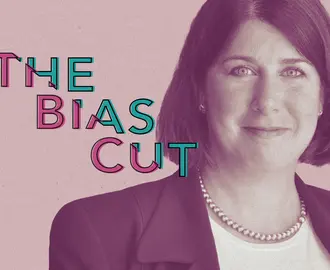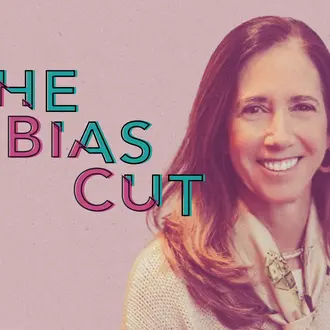The Bias Cut
Northwestern Mutual’s strategy chief: Take on challenges no one else wants
“Women often talk themselves out of opportunities when they should be doing the opposite.”
A 2022 women’s leadership study from LeanIn.org and McKinsey & Co. found that American women held 40% of corporate management positions, and women continue to fight underrepresentation when it comes to board positions and CEO roles. They also face gender bias, harassment, and opposition to their management styles.
Here’s how one MIT Sloan alumna has pushed back on those statistics and used what she’s learned along the way to help those behind her.
Aditi Javeri Gokhale, MBA ’00, chief strategy officer, president of retail investments, and head of institutional investments, Northwestern Mutual.
Given what you know now, what would you tell your younger self about being a woman in your industry?
I would tell her to go for any job she has interest in. Women often talk themselves out of opportunities when they should be doing the opposite. I spent significant time early in my career asking myself if I had the right experience. Turns out, what mattered most was my mindset.
The good news is that views are evolving, especially in financial services. I’m thrilled with the growing number of women who are joining the industry to help others build wealth while ascending in their own careers.
Can you give an example of a time you’ve experienced or witnessed gender bias? How did it affect you professionally? What impact did it have on your job?
As a woman in corporate America, I’m often the only one sitting at the table who looks like me. I vividly remember early in my career being told to make the copies and stay in the back of the room for meetings while the men ran the sessions.
During my career, I’ve been passed over for promotions — or kept out of consideration entirely — for roles I had every right to compete for. It’s easy to lose heart in the face of such adversity, but I stayed steady and strong, working my way up in roles that I felt passionate about, with one opportunity leading to another.
What is the most difficult lesson you’ve learned in your professional life? In what unexpected ways did you grow from it?
During the pandemic, all leaders needed to display empathy and understanding in an ever-changing situation. As a working mom, I intentionally showed that having family, kids, and pets in a Zoom background was perfectly acceptable. I frequently asked my son to say hello in meetings during that time, to show we were in this together. One day, when my son needed our table for a project, I let everyone see my makeshift workstation: an ironing board. The experience helped me realize the importance of showing your personal side, making the most of every moment, and the criticality of authenticity to build trust.
What’s one specific way you tend to your well-being, and how do you encourage well-being among your staff?
My well-being starts with my sources of happiness: quality time with my son, engaging with my friends, and working for a purpose-driven company that encourages me to be my authentic, best self. If these elements are in harmony, I have balance.
As a leader, I’m intentional about empowering others to strike a work-life blend and to be open and honest about it. If members of my team need to attend a doctor’s appointment or a child’s activity, I want them to feel empowered to just say that. To create that environment, I’m transparent about my life and my schedule.
What’s one skill or behavior women can adopt to make their career path more successful and more manageable?
I’ve always recommended taking on challenges that no one else is willing to. Take risks and raise your hand for assignments that may intimidate others. It can be a high-risk proposition, but done well, it can be tremendously rewarding. Those are often the roles that help you get noticed.
If you could snap your fingers and change one thing about workplaces, societal norms, or public policies that would most benefit women in the workforce, what would it be?
I would snap my fingers and create a world where women always have an equal voice and a seat at the table. This ideal future is not just about head count; it’s about making a meaningful impact: creating a level playing field where women can shape experiences and drive business outcomes.




